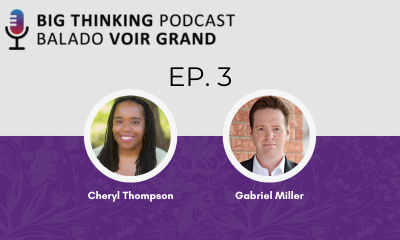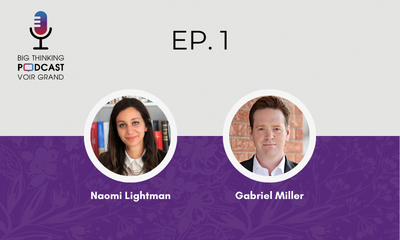VANCOUVER, June 4, 2019 — Hockey is the quintessential Canadian game and is considered emblematic of our country. Whether it’s being played by kids at a local rink, or by professionals on TV, hockey unites us and gives everyone something to cheer for. It’s part of what makes us feel Canadian, and the history and traditions of the game are embedded in our national identity.
But what does that mean for newcomers to Canada? Does Canada’s multiculturalism — itself a key part of our national identity — extend to the hockey arena? Can hockey help integrate newcomers into Canadian society?
Lloyd Wong, a researcher in the Department of Sociology at the University of Calgary, is investigating these questions. Partnering with Howard Ramos of Dalhousie University, the research team is conducting interviews with hockey players and fans at arenas in Calgary, Toronto, and Halifax. Both researchers grew up playing hockey, a personal interest which dovetails with their professional interests.
Wong says that initial findings suggest that hockey “has a community-building aspect,” helping immigrants who play or watch the game to integrate into Canadian life. Furthermore, participating in hockey can help newcomers develop a sense of Canadian identity.
While the project is ongoing, Wong says the new knowledge gained “will contribute to a better understanding of the role of hockey in Canadian multiculturalism.” He thinks these results could have policy implications, specifically around making sports like hockey more accessible and inclusive for underrepresented and marginalized populations in Canada.
The paper Just Add Ice?: Hockey and the Social Integration of Newcomers and Racialized Minorities by Lloyd Wong and Howard Ramos is among thousands of new pieces of research being presented this week at the Congress of the Humanities and Social Sciences. Canada’s largest academic gathering, Congress brings 8,000 of the country’s brightest researchers, thinkers, and policy-makers to Vancouver from June 1-7.
Congress is organized by the Federation for the Humanities and Social Sciences, which promotes research and teaching for the advancement of an inclusive, democratic and prosperous society. With a membership now comprising over 160 universities, colleges and scholarly associations, the Federation represents a diverse community of 91,000 researchers and graduate students across Canada. Congress 2019 is hosted by The University of British Columbia.
The Congress 2019 media kit can be downloaded here. More information about Congress is available on their website, Twitter and Facebook.
-30-
The views and opinions expressed by the researchers in this media release and in the paper being presented at the Congress of the Humanities and Social Sciences are their own and do not reflect those of the Federation for the Humanities and Social Sciences nor of The University of British Columbia.
For interview requests
Federation for the Humanities and Social Sciences
Nicola Katz
Manager of Communications
nkatz@ideas-idees.ca
Cell: 613-282-3489
University of British Columbia
Erik Rolfsen
Media Relations Specialist
erik.rolfsen@ubc.ca
Cell: 604-209-3048

Naviguer le lien entre l'immigration et l'éducation au Canada
← Page d'accueil du balado Voir Grand Description | À propos de l'invitée | Transcription | Suivez nous Description Dans cet épisode, nous explorons un sujet qui a fait les grands titres au Canada au cours de la dernière année : le plafond imposé...

Du Jheri curl à TikTok : le Canada et l'industrie mondiale de la beauté noire
← Page d'accueil du balado Voir Grand Prochain épisode → Description | À propos de l'invitée | Transcription | Suivez nous Description Chaque jour, nous sommes bombardé.e.s de mots et d'images qui nous influencent les diktats de la beauté, ainsi...

Qui s'occupe des soignant.e.s?
← Page d'accueil du balado Voir Grand Prochain épisode → Description | À propos de l'invitée | Transcription | Suivez nous Description Qui s'occupe des soignant.e.s? Cette question est trop importante pour que l'on l'ignore, surtout depuis que la...
